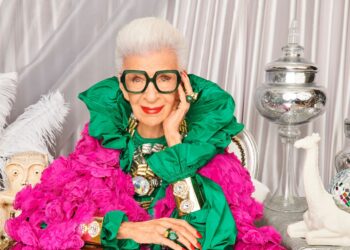 Marie Evans recalled she was 9 years old when she first started getting free cigarettes in the Boston housing project where she lived.
Marie Evans recalled she was 9 years old when she first started getting free cigarettes in the Boston housing project where she lived.
At first, she traded them for candy, but she said she started smoking them herself at age 13. Four decades later, Evans died of lung cancer.
Now, an unusual lawsuit is set to go to trial in Suffolk Superior Court, accusing the maker of those cigarettes — Lorillard Tobacco Co. — of deliberately trying to entice black children to become smokers by handing out free samples in urban neighborhoods.
Opening statements are scheduled Friday in a wrongful death lawsuit filed by Evans’ son against Lorillard, the nation’s third-largest tobacco company. Willie Evans alleges that the firm used an illegal marketing strategy to get his mother to begin smoking Newport cigarettes, which led to a lifelong addiction.
In 1957, when Marie Evans first began receiving the free samples, Massachusetts law prohibited giving cigarettes to children. The lawsuit alleges that Lorillard broke that law in its zeal to attract new smokers. The giveaways in urban neighborhoods were “designed to attract African-American children and teenagers and to place cigarettes in their hands,” the lawsuit states.
The company’s attorneys say there’s no evidence Lorillard gave Evans cigarettes.
The lawsuit is believed to be the first in the country to accuse a cigarette maker of targeting black children by giving away cigarettes in urban neighborhoods, said Edward Sweda Jr., senior attorney for the Tobacco Product Liability Project at Boston’s Northeastern University School of Law.
“This case really describes the whole history of one child being exposed to a deliberate marketing campaign of putting an addictive and deadly product into the child’s hands, literally, with the foreseeable result that at some point soon thereafter she would start using that product, get addicted to it, and unfortunately, 40 years later, come down with fatal lung cancer,” Sweda said.
Gregg Perry, a spokesman for the Greensboro, N.C., company, said Lorillard would not comment before the trial.
During a court hearing in August, Lorillard’s attorneys said that the family had not presented enough evidence to prove that the company was responsible for Marie Evans’ addiction and the effect it had on her health. Lorillard attorney Andrew McElaney also said there is no evidence to “support the finding that Lorillard Tobacco Co. gave Marie Evans cigarettes.”
In depositions before her death in 2002, Evans recalled getting free sample packs of Newports during giveaways in or near the Orchard Park housing complex in Boston’s Roxbury neighborhood. She said she received samples from a “Newport van” 25 to 50 times.
“At no time during any of these giveaway events did any Lorillard agent and/or representative refuse to give Marie Evans samples of Newport cigarettes because of her age,” her son’s lawsuit states. “She started smoking Newport cigarettes in part because she had access to them at no cost on a frequent basis through the Newport cigarette giveaway events conducted by Lorillard.”
Marie Evans smoked up to a pack-and-a-half of Newports a day from the time she began smoking until shortly before her death at age 54, according to the lawsuit.
In court papers, lawyers for Lorillard have argued that the company should not be held liable for any harm to Evans that occurred after 1969, when Congress began requiring cigarettes to carry a warning label.
The federal government is planning to expand and toughen those warning labels, as dozens of countries have done. Just this week, the Food and Drug Administration and the Department of Health and Human Services released graphic images they are considering adding to cigarette packs. Some tobacco makers, including Lorillard, are challenging the legality of the new labels in a federal lawsuit that argues they will make their brands difficult to see.
Marie Evans’ first health problem from cigarettes was a heart attack in 1984, according to her son’s lawsuit.
Lorillard’s attorney argued that the lawsuit should have been filed within three years of that heart attack to fall within the statute of limitations.
The lawsuit also names three companies that distributed Newport cigarettes in the Boston area during the time Marie Evans was smoking Newports.
Lawyers for Will Evans argue that when Marie Evans began smoking as a young teenager, she was unaware that smoking causes a number of illnesses — including lung cancer — and was too young to appreciate the health risks and addictive nature of smoking. In addition to the free giveaways, Evans’ lawyers say her preference for Newport cigarettes was influenced in part by advertisements placed by Lorillard in black magazines such as Jet and Ebony.
Doug Blanke, executive director of the Tobacco Control Legal Consortium, a national network of legal centers supporting the tobacco-control movement, said the industry has a long history of marketing cigarettes to black people.
“You don’t have to be a research expert to look at the history of advertising, which has always featured African-American models, so you know that community is targeted,” Blanke said.












